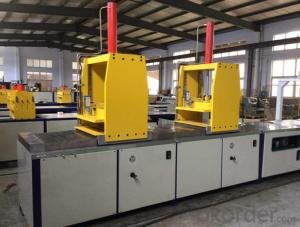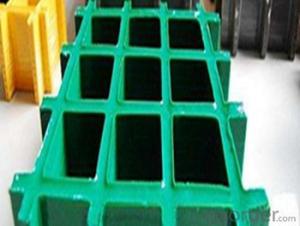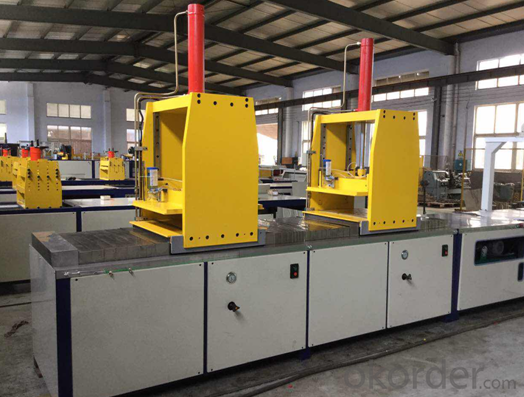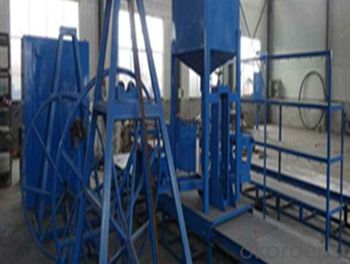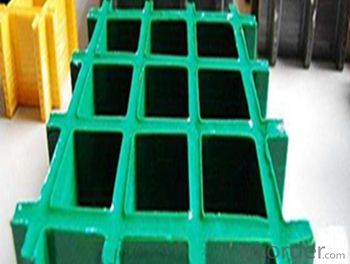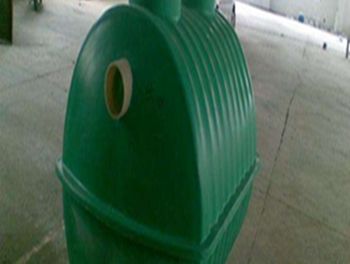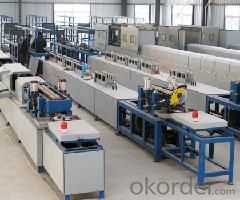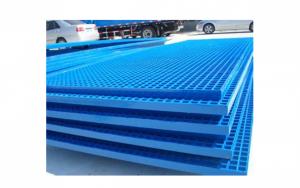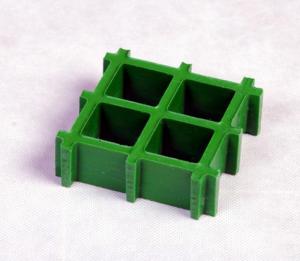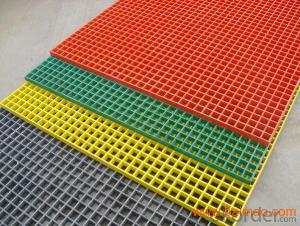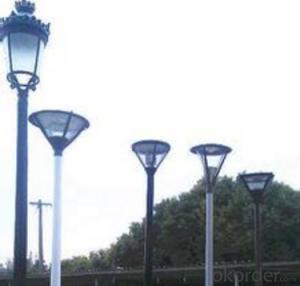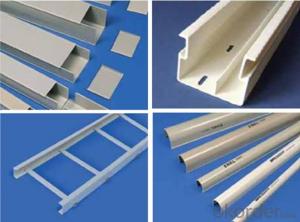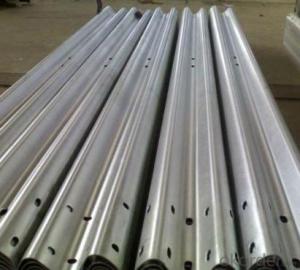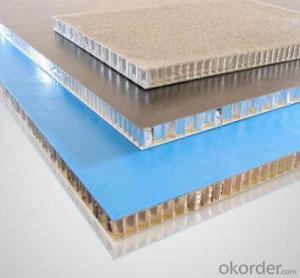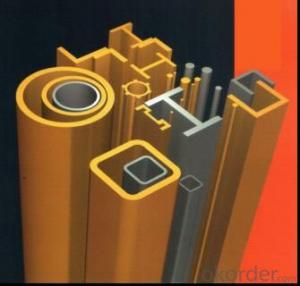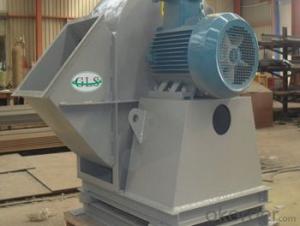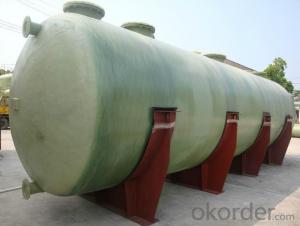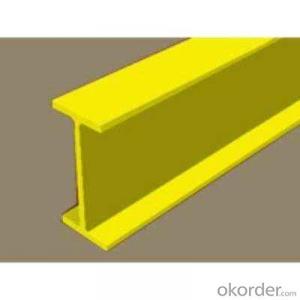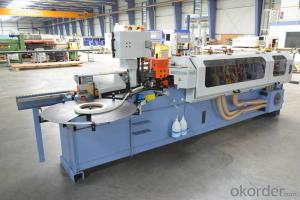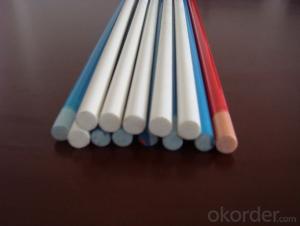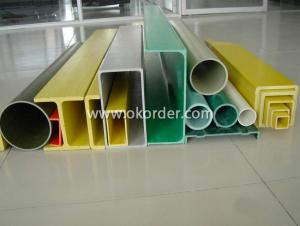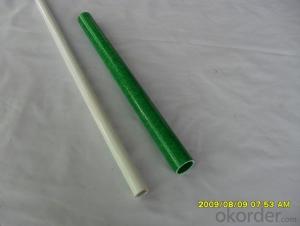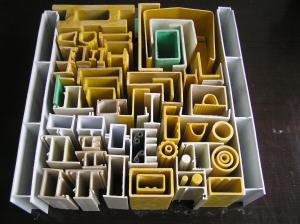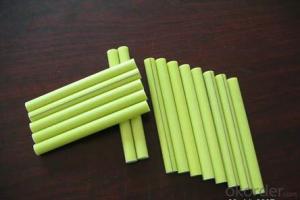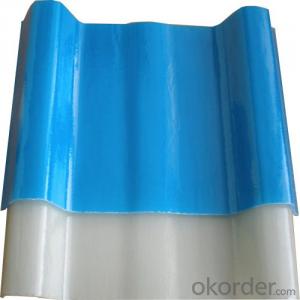FRP Pultrusion Profiles - Anti-Aging FRP Pultruded Grating with Good Quality
- Loading Port:
- Tianjin
- Payment Terms:
- TT OR LC
- Min Order Qty:
- 20000 m.t.
- Supply Capability:
- 100000 m.t./month
OKorder Service Pledge
OKorder Financial Service
You Might Also Like
Specification
PRODUCT DESCRIPTION
Pultruded grating is made by a particular assembly process, which using “I” shape as its main load-bearing and special rod to go through the bearing bar. Pultruded grating include the standard grating and the custom grating, the custom grating can be designed to meet customer’s requirement or special using condition by changing the shape, size and space of the bearing bars, the surface can be covered with lozenge panel, grit panel, or added the anti-slippery sand directly.
FRP pultruded grating has the most characteristics of molded grating, but it has its distinct advantages, it has very high fiberglass content in the loading direction, so it has very high load capability, it has more superiority when used at wide span, so that the basic support will be decreased and the project cost will be reduced accordingly.
SPECIFICATION
The standard space between two crossbars is 6 inch or 12 inch.
Thickness (mm) | Bar width (mm) | Open space (mm) | Open rate (%) | Approx weight (kg/m |
25.4 | 15.2 | 22.8 | 60 | 13.2 |
25.4 | 15.2 | 15.2 | 50 | 15.9 |
25.4 | 15.2 | 10.1 | 40 | 18.5 |
25.4 | 40 | 10.8 | 21 | 14.5 |
38.1 | 15.2 | 22.8 | 60 | 15.8 |
38.1 | 15.2 | 15.2 | 50 | 19.1 |
38.1 | 15.2 | 10.1 | 40 | 22.4 |
50.8 | 25.4 | 25.4 | 50 | 16.6 |
50.8 | 25.4 | 12.7 | 33 | 21.1 |
CHOICE FOR PULTRUDED GRATING
Resin: GP resin, ISO resin, VE resin, Phenol resin
Color choice: Yellow, gray, green, custom color
Surface choice: Groove surface, grit surface, lozenge cover surface
FEATURES
a. Anti-corrosion and anti-rust
b. Light weight and high strength
c. Anti-flammable
d. Anti- fatigue
e. Safe and anti-slippery
f. Anti-ageing
g. Easy of maintenance
h. Excellent electromagnetism property
i. Good economic benefit
FIELDS SERVED
Sewage treatment,
water supply and drainage,
chemical industry,
oil industry,
power engineering,
pulp and paper,
construction engineering,
spinning, marine engineering.
APPLICATION
Operation terrace,
stair walkway,
ground floor,
trench cover,
sidewalk,
foot bridge,
equipment safety fence,
scaffold.
COMPANT DESCRIPTION
CNBM,China National Building Materials Group is a state-owned enterprise in charge of administrative affairs in china building materials industry. Established in 1984, CNBM is a large group corporation of building materials with total assets of 25 billion RMB and a total staff of 30,000.CNBM now owns 200 subordinating firms of solely owned and joint-venture companies.
CNBM International Corporation is one subsidiary of CNBM, we focus on offering good-quality products,professional service and complete solution to our customers. Strong delivery capacity, advanced technology& management, strong financing capability and excellent after-sale service are our advantages in sharing international market.
FAQ
Q1.What's your sample policy?
A:We can supply the sample if we have ready parts in stock, but the customers have to pay the courier cost.
Q2.Can you produce according to the samples?
A: Yes, we can produce or modify the products according to your request.
Q3.How do you deliver the goods to my country?
A:We can provide international express, such as DHL, EMS, UPS, FedEx, etc. We select air freight and sea freight upon your requests. Quotations if without mentioning the shipping costs are shipping fee excluded.
Q4.How much does it cost to ship to my country?
A:When you goanna to place an order, please contact us, because different country has different freight.
Q5.How to get the catalogue?
A:please contact us and tell us what you are looking for.
We will try our best to meet customers' demands. Welcome you come here to visit us. We sincerely welcome partners around the world to establish business cooperation with us on the basis of mutual trust, benefit and development.
PICTURES
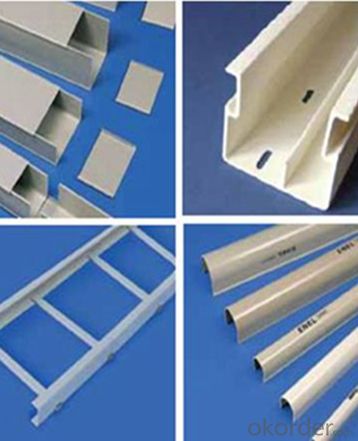
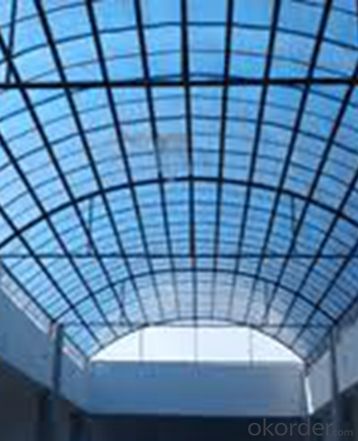
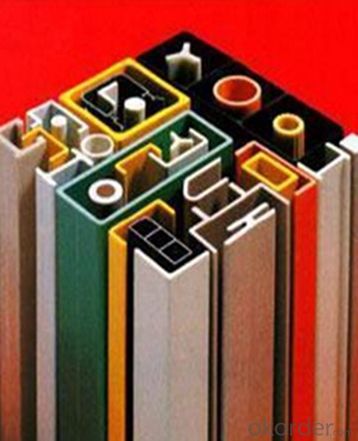
- Q: How do FRP pultrusion profiles perform in corrosive gas environments?
- FRP pultrusion profiles perform exceptionally well in corrosive gas environments due to their inherent resistance to corrosion. The composite materials used in their construction, such as fiberglass reinforcements and resin matrices, provide excellent protection against chemical attack and degradation. This makes FRP pultrusion profiles a reliable choice for applications where exposure to corrosive gases is a concern.
- Q: Are FRP pultrusion profiles resistant to moisture or humidity?
- FRP pultrusion profiles boast exceptional resistance to moisture and humidity. Through the pultrusion process, continuous fibers are thoroughly saturated with a polymer resin, resulting in a steadfast and enduring composite material. This composite possesses inherent moisture resistance, differing from conventional materials like wood or metal, as it does not absorb water. Moreover, FRP pultrusion profiles exhibit a minimal coefficient of thermal expansion, minimizing the likelihood of expansion or contraction in response to varying humidity levels. This moisture and humidity resistance render FRP pultrusion profiles suitable for a diverse array of applications, including outdoor structures, marine environments, and other areas prone to moisture.
- Q: Can FRP pultrusion profiles be used in water treatment plants?
- Indeed, water treatment plants can utilize FRP (Fiber Reinforced Polymer) pultrusion profiles. The utilization of FRP pultrusion profiles in this industry brings forth numerous advantages that render them highly suitable. To begin with, FRP pultrusion profiles possess exceptional resistance to corrosion. Given the aggressive environments found in water treatment plants, where exposure to chemicals and moisture is common, the traditional materials like steel are prone to corrosion and degradation. However, FRP pultrusion profiles are immune to corrosion, making them an ideal choice for water treatment applications. Moreover, FRP pultrusion profiles exhibit remarkable strength-to-weight ratios. This implies that they offer superior structural integrity while being lightweight, rendering them easier to handle and install within water treatment plants. Additionally, their high strength enables them to endure the loads and pressures typically encountered in these environments. Furthermore, FRP pultrusion profiles are non-conductive of electricity. This feature is particularly advantageous within water treatment plants where there may be a necessity to isolate electrical equipment or components to prevent short circuits and safeguard personnel. FRP profiles provide a safe and dependable solution in such cases. Lastly, FRP pultrusion profiles possess a long service life and necessitate minimal maintenance. They do not rot, rust, or corrode, ensuring durability and longevity even in harsh water treatment conditions. This reduces downtime and maintenance costs, making FRP profiles a cost-effective choice for water treatment plant applications. All in all, due to their corrosion resistance, high strength-to-weight ratio, electrical non-conductivity, and long service life, FRP pultrusion profiles are an exceptional option for utilization in water treatment plants. Their usage can contribute to enhanced efficiency, reduced maintenance, and increased durability in water treatment processes.
- Q: Are FRP pultrusion profiles resistant to hail or impact damage?
- Yes, FRP pultrusion profiles are typically resistant to hail or impact damage due to their strong and durable composition. The combination of reinforced fibers and resin matrix make them highly resistant to external forces, ensuring longevity and minimal damage in the event of hail or impact.
- Q: Do you have any high temperature resistant resin made of pultruded glass fiber reinforced plastic?
- High temperature resistant resin heding sculpture factory used, can reach 300 degrees, you can go to Baidu or Taobao to find sellers. It seems that the material suppliers in Guangdong are selling, and they are all made of glass fiber reinforced plastic sculptures. The weather resistance is better.
- Q: Can FRP pultrusion profiles be used in the construction of wastewater treatment tanks?
- Indeed, wastewater treatment tanks can effectively utilize FRP pultrusion profiles. These profiles are renowned for their exceptional strength-to-weight ratio, resistance to corrosion, and longevity, making them an optimal option for harsh environments such as wastewater treatment facilities. To manufacture FRP pultrusion profiles, continuous fibers like glass or carbon are drawn through a resin bath and subsequently through a heated die to attain the desired shape. This process yields profiles with consistent cross-sections and outstanding mechanical properties. In the construction of wastewater treatment tanks, FRP pultrusion profiles can serve various purposes. They can function as structural components, like beams, columns, and bracing systems, offering the necessary strength and rigidity to support the tank structure. Additionally, FRP profiles can reinforce concrete structures, bolstering their durability and resistance against chemical attack from the wastewater. Moreover, FRP pultrusion profiles can be engineered to endure the corrosive impact of the chemicals and gases found in wastewater treatment tanks. Unlike conventional materials such as steel or concrete, FRP exhibits a high resistance to corrosion, guaranteeing an extended service life and reduced maintenance expenses. Furthermore, FRP profiles provide advantages in terms of installation and transportation. They are lightweight, enabling easier handling and diminished labor requirements during construction. The modular nature of FRP profiles also facilitates swift assembly and disassembly, simplifying maintenance and modifications. Overall, incorporating FRP pultrusion profiles in the construction of wastewater treatment tanks offers numerous benefits, including superior strength, corrosion resistance, durability, and ease of installation. These advantages render FRP a dependable and cost-effective choice for wastewater treatment facilities.
- Q: What are the main uses of pultruded glass fiber reinforced plastic extrusions?
- Spend entertainment mall, this is a potential market, the development of use: fishing rod, curtain rod, umbrella frame, flagpole, stuff handle, lamp, railings, handrails and staircases, radio antenna, marinas, garden tools and accessories.
- Q: Are FRP pultrusion profiles UV resistant?
- Yes, FRP (Fiber Reinforced Polymer) pultrusion profiles are typically UV resistant. This is because they are manufactured using a combination of polymer resin and reinforced fibers such as fiberglass. These materials have inherent UV resistant properties, making FRP pultrusion profiles resistant to damage caused by prolonged exposure to sunlight and ultraviolet radiation. UV resistance is a crucial characteristic for outdoor applications where the profiles will be exposed to sunlight, such as in construction, infrastructure, and marine industries. However, it is important to note that the level of UV resistance may vary depending on the specific resin and fiber composition used in the manufacturing process. Therefore, it is recommended to consult the manufacturer or supplier for specific information on the UV resistance of FRP pultrusion profiles for a particular application.
- Q: Can FRP pultrusion profiles be used in the construction of highway guardrails?
- Yes, FRP (Fiber Reinforced Polymer) pultrusion profiles can be used in the construction of highway guardrails. FRP pultrusion profiles offer several advantages that make them suitable for this application. Firstly, FRP pultrusion profiles are lightweight yet strong, making them ideal for highway guardrails. They have a high strength-to-weight ratio, which means they can provide the necessary structural support while being much lighter than traditional materials like steel. This makes transportation, installation, and maintenance easier and more cost-effective. Secondly, FRP pultrusion profiles are corrosion-resistant. Unlike steel, which can rust over time due to exposure to harsh weather conditions, FRP does not corrode. This makes FRP guardrails durable and long-lasting, reducing the need for frequent repairs or replacements. Additionally, FRP pultrusion profiles are non-conductive, meaning they do not conduct electricity. This is an important safety feature for highway guardrails, as it eliminates the risk of electrical shock in case of accidents involving power lines or lightning strikes. Furthermore, FRP pultrusion profiles can be manufactured in various shapes and sizes to meet the specific requirements of highway guardrails. They can be designed to have the necessary stiffness and impact resistance to withstand the forces exerted by vehicles during accidents or collisions. In summary, FRP pultrusion profiles are a suitable material for the construction of highway guardrails due to their lightweight, corrosion-resistant, non-conductive, and customizable properties. They offer a cost-effective and durable solution that can contribute to improving safety on highways.
- Q: Can FRP pultrusion profiles be used in modular construction?
- Yes, FRP (Fiber Reinforced Polymer) pultrusion profiles can definitely be used in modular construction. FRP profiles are lightweight, high-strength, corrosion-resistant, and have excellent thermal and electrical insulating properties. These characteristics make them ideal for use in modular construction, where the emphasis is on prefabrication, transportation, and rapid assembly. The use of FRP pultrusion profiles in modular construction offers several advantages. First, their lightweight nature makes them easy to handle and transport, reducing logistical costs and effort. Second, their high strength-to-weight ratio ensures structural integrity while minimizing the overall weight of the modular components. This is particularly beneficial in applications where weight reduction is crucial, such as rooftop installations or areas with limited load-bearing capacity. Furthermore, the corrosion resistance of FRP profiles eliminates the need for regular maintenance and extends the lifespan of the modular construction. This is particularly advantageous in harsh environments, such as coastal areas or chemical processing facilities, where traditional construction materials like steel may deteriorate quickly. Additionally, FRP pultrusion profiles can be easily customized to meet specific design requirements. They can be manufactured in various shapes, sizes, and colors, allowing for flexibility in modular construction design. The profiles can also be easily integrated with other construction materials, such as concrete or wood, providing compatibility with existing modular systems. In summary, FRP pultrusion profiles are highly suitable for modular construction due to their lightweight, high strength, corrosion resistance, and customization capabilities. Their use in modular construction can enhance efficiency, reduce costs, and improve the overall performance and durability of modular buildings and structures.
Send your message to us
FRP Pultrusion Profiles - Anti-Aging FRP Pultruded Grating with Good Quality
- Loading Port:
- Tianjin
- Payment Terms:
- TT OR LC
- Min Order Qty:
- 20000 m.t.
- Supply Capability:
- 100000 m.t./month
OKorder Service Pledge
OKorder Financial Service
Similar products
Hot products
Hot Searches
Related keywords
